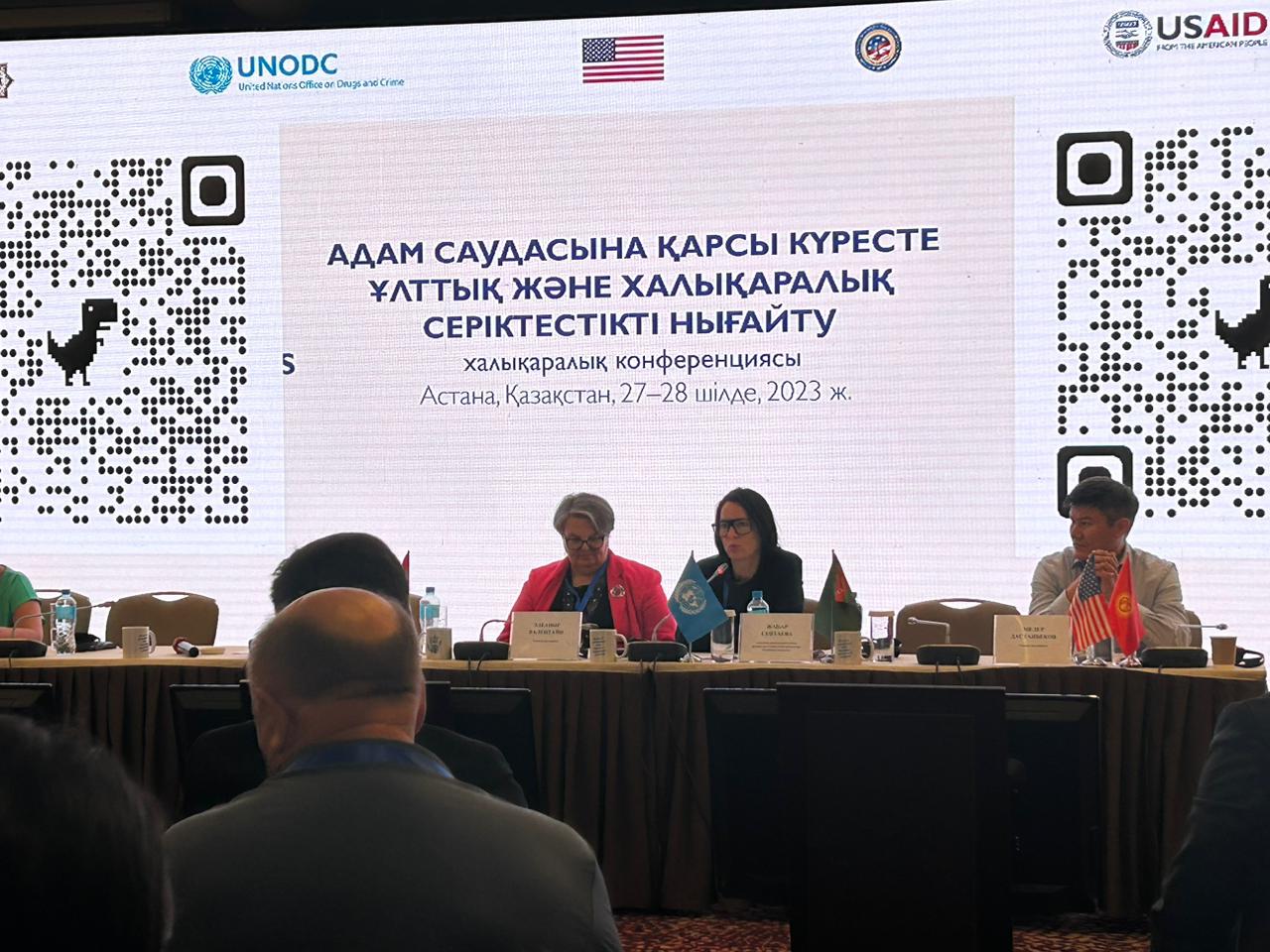ASTANA – A conference titled Strengthening National and International Partnerships to Combat Trafficking in Persons, dedicated to the World Day against Trafficking in Persons observed on July 30, took place in Astana on July 27-28.

A two-day conference on Strengthening National and International Partnerships to Combat Trafficking in Persons in Astana. Photo credit: The Astana Times.
It is reported that Kazakhstan registered 110 cases of human trafficking in the past six months, reported Khabar news. Every seventh victim is a child.
In recent years, the country has recorded 35 cases where children from villages were trafficked for forced labor in big cities. Over the past five years, 58 girls have been taken abroad for forced sexual exploitation.
Considering the increasing number of such crimes, 14 crisis centers have been established in Kazakhstan to support victims with the help of psychologists, physicians, and lawyers. Since the beginning of the year, 70 people have received such support.
The event under the theme ‘Reaching Every Victim of Human Trafficking, Leaving No One Behind’ aims to bolster cooperation between countries and civil society in Central Asia on a holistic basis to identify cases of human trafficking and address various forms of exploitation and the problems faced by victims.
According to Kaliolla Seitenov, the acting Rector of the Academy of Law Enforcement Agencies at the Prosecutor General’s Office of Kazakhstan, one of the achievements the country has reached in this direction is a draft law on combating human trafficking, which is under consideration by the lower house of the Parliament.
Ashita Mittal, UN Office for Drugs and Crime (UNODC) Regional Representative for Central Asia, noted the UNODC’s objective to enhance law enforcement response to human trafficking and related crimes in Central Asia and beyond through coordinated and targeted law enforcement actions and operations.
“Through effective cooperation, information sharing, and joint operations, we can stem the transnational nature of this crime and ensure that traffickers do not find a safe haven,” she stated.
U.S. Ambassador to Kazakhstan, Daniel Rosenblum, spoke about the three Ps approach – prevention, prosecution, and protection – emphasizing the fourth P of partnerships as one of the pillars of successful anti-trafficking efforts.
Rodney Ferguson, President and CEO of Winrock International, a nonprofit organization that works with people globally to empower the disadvantaged, elaborated on the problem, informing that traffickers in Central Asia are increasingly using social media and online platforms to recruit and exploit people.
“Over the past year, we have learned more about cyber fraud camps, which we know have already recruited several Central Asian IT professionals who made their way to Southeast Asia and became victims who were coerced into criminal activity,” he said.
According to Ferguson, the company works with partners to prevent and protect victims by communicating with survivors and connecting communities to remedies.
The participants outlined the meeting outcomes, emphasizing the need to raise awareness of the human trafficking risks, urging all state and non-state stakeholders to review and improve actions for identifying victims, strengthening the regional mechanism of interaction in detecting and investigating crimes, sharing and exchanging national best practices, promoting partnerships among Central Asia’s critical criminal justice practitioners and civil society organizations, and implementing the Bukhara Declaration on enhancing partnerships.
The conference brought together representatives from Kazakhstan, the Kyrgyz Republic, Tajikistan, Turkmenistan, Uzbekistan, the United States, and the United Nations to exchange best practices and experiences in combating human trafficking and rehabilitating and reintegrating victims.
The participants also reviewed crime statistics related to investigations and prosecutions.
They discussed support measures, including assistance to countries in drafting, developing, and revising action plans, prevention and community awareness-raising, data collection and research, legislative service, strategic planning and policy development, criminal justice responses, victim protection and support, international cooperation, training and mentoring of professionals using tools to apprehend, prosecute and convict traffickers.
The first conference took place in Bukhara, Uzbekistan, on Nov. 25-26, 2021, where delegates emphasized the need for greater regional cooperation to address human trafficking.


